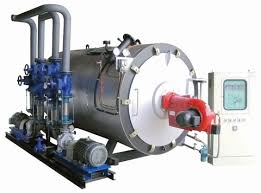
Nov . 01, 2024 17:19 Back to list
Gas-Powered Hot Water Heating Systems for Efficient Home Comfort
Understanding Gas-Fired Hot Water Furnaces
A gas-fired hot water furnace is a heating system that utilizes natural gas or propane to generate hot water for residential or commercial spaces. These furnaces are essential for maintaining comfortable indoor temperatures during colder months and are also used for domestic hot water needs. With the growing emphasis on energy efficiency and environmental sustainability, gas-fired hot water furnaces have become a popular choice among homeowners and builders alike.
Functionality of Gas-Fired Hot Water Furnaces
The process begins when gas is ignited within the furnace, generating heat. This heat is transferred to a heat exchanger, where water circulates, absorbing the generated warmth. Once heated, the water is distributed throughout the home via pipes, radiators, or underfloor heating systems. The entire process can be controlled using a thermostat, ensuring that the home remains at the desired temperature without wasteful over-heating.
Efficiency and Benefits
One of the significant advantages of gas-fired hot water furnaces is their efficiency. Compared to electric heating systems, gas furnaces generally offer lower operational costs, especially in regions where natural gas is abundant and affordable. Modern gas furnaces are designed to be highly efficient, often featuring Annual Fuel Utilization Efficiency (AFUE) ratings of 90% or higher. This means that the majority of the energy consumed is used effectively for heating, resulting in lower utility bills and reduced environmental impact.
gas fired hot water furnace

Additionally, gas-fired systems can provide hot water on demand, making them suitable for households with high hot water needs, such as families or residences with multiple bathrooms. The continuous supply of hot water allows for more flexibility in usage, eliminating the long waits often associated with electric water heaters.
Environmental Considerations
While natural gas is a fossil fuel and contributes to greenhouse gas emissions, it is often touted as a cleaner alternative to coal or oil when it comes to heating. With advancements in technology, many gas-fired hot water furnaces are now designed to emit fewer pollutants and are more environmentally friendly than in previous generations. Owners can also consider integrating renewable energy sources, such as solar panels, to offset some of the gas usage and further enhance sustainability.
Conclusion
In summary, gas-fired hot water furnaces are a reliable and efficient heating option for homes and businesses. They provide effective heating solutions while balancing cost and environmentalimpact. As technology continues to advance, these systems are likely to become even more efficient, making them an increasingly attractive option for those looking to heat their spaces efficiently and sustainably. When considering a heating system, evaluating the benefits and efficiency of gas-fired hot water furnaces can lead to informed decisions that enhance comfort and support energy conservation efforts.
-
High-Efficiency Commercial Oil Fired Steam Boiler for Industry
NewsJul.30,2025
-
High-Efficiency Biomass Fired Thermal Oil Boiler Solutions
NewsJul.30,2025
-
High Efficiency Gas Fired Thermal Oil Boiler for Industrial Heating
NewsJul.29,2025
-
High-Efficiency Gas Fired Hot Water Boiler for Sale – Reliable & Affordable
NewsJul.29,2025
-
High Efficiency Biomass Fired Hot Water Boiler for Industrial and Commercial Use
NewsJul.29,2025
-
High-Efficiency Biomass Fired Hot Water Boiler for Industrial Use
NewsJul.28,2025
Related PRODUCTS






















